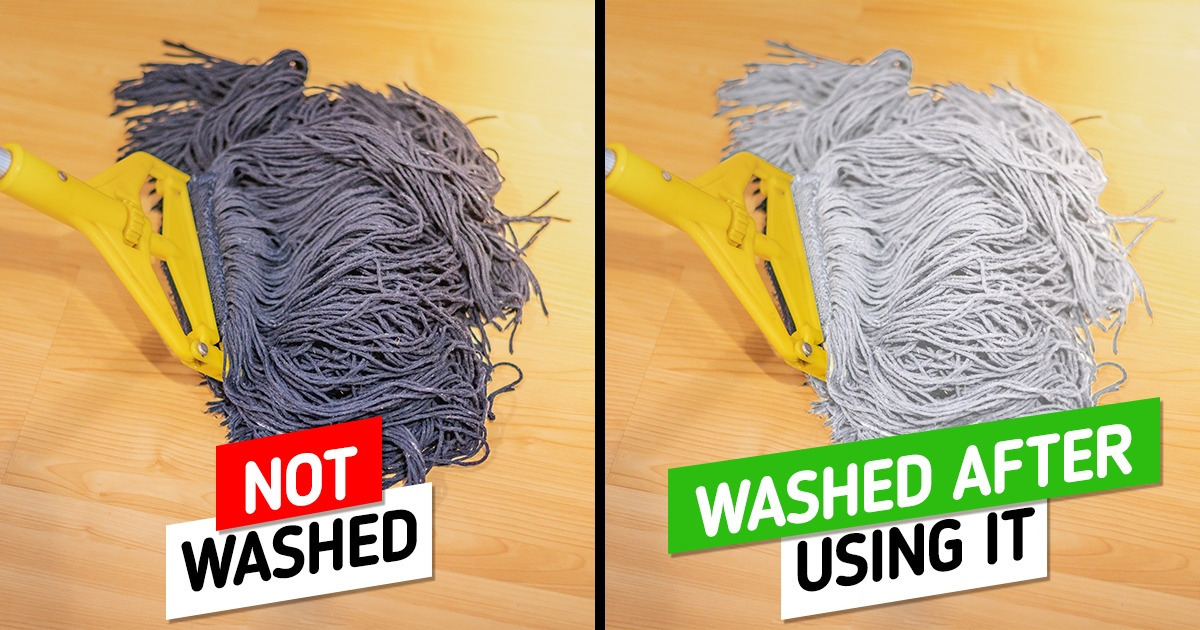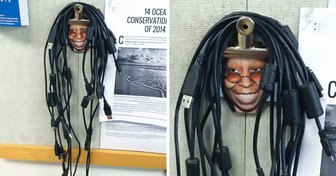15 Movie and TV Duos That Definitely Aren’t What We Remembered Them to Be


Every single thing that exists on this planet needs to be washed, some more often than others. But we can all agree that we almost never wash some objects, and we don’t even think about washing them. For example, some of the most hated washing chores include cleaning the toilet, the stovetop, and the windows. But there are other, smaller items that we tend to forget about that we are about to remind you that they need cleaning.
A study showed that 95% of purses and handbags harbor many bacteria and even viruses that can survive on them for days. You manage to keep these pathogens at bay by washing and cleaning your bags regularly.
Cleaning your grocery bags often if not after every use is a good way to prevent cross-contamination. Of course, the best solution would be to use different bags for raw meats and different ones for other products.
Leather jackets also need to be cleaned. Of course, washing them in the machine or in a pot with water is not a good idea — these jackets require a more thorough approach. And it’s best to clean your jacket at least once a year or even every 6 months if you wear it daily.
It’s advised to clean leather jackets with dishwashing liquid. Simply dilute it in a bowl with clean water that is room temperature, take a soft piece of cloth, and carefully wipe the surface of the leather item. Afterward, soak another cloth in clean water and remove the soapy solution from the jacket. After cleaning, carefully dry the jacket with a towel and hang it to dry.
A gym bag is another item that many of us forget to wash. First, check whether your bag can be washed in the machine. If yes, do it in delicate mode. Before washing, check all the pockets, turn the bag inside out, and remove the straps. If you can’t pull them off, tie them in a knot.
For bags that can’t be washed in the machine, you can wash them by hand. Dilute a cleaning detergent in lukewarm water, take a piece of cloth and wash the bag first inside and then outside. Afterward, rinse the cloth well, pour in clean water, and repeat the procedure to remove the soap.
It’s best to tumble-dry pillows once a month to keep them free of dust and mold. They need a full wash at least 2 times a year. Pillows made of down, feathers, and a down substitute can be machine-washed. Polyester pillows can be either machine-washed or hand-washed. When washing, use a mild detergent, the delicate cycle, and cool water.
Memory foam or latex pillows can’t be washed. You can remove the pillowcases, and machine wash or hand wash them. The pillows themselves should be vacuum-cleaned from both sides.
For some reason, many of us don’t even think about washing it. Meanwhile, dirt and bacteria from clothes often remain inside them, so it is recommended to wash them weekly. If you are using a plastic basket, it can be cleaned with the help of a disinfecting agent, washed with a soapy solution, and rinsed with water.
Today, wicker baskets with textile bags placed inside them are becoming very popular. The bag should be taken out and machine-washed. When washing them in a washing machine, set more delicate parameters (low washing and drying temperatures) to avoid shrinkage. Do the same with fabric baskets.
The bathroom holds the perfect environment for mold, mildew, and other bacteria. Shower curtains can and should be washed. In addition, due to the warm and humid environment, mold sometimes grows on these curtains. Most fabric curtains can be machine washed on a delicate cycle.
When washing plastic bath curtains, it’s recommended to put a couple of towels in the machine. They will help the curtain not to wrinkle too much. They should be washed in cool water, and tumble drying is not recommended in this case. Right after washing, hang the curtain on the line and dry it well.
It’s necessary to wash bath mats at least 2 times a month. Examine the label and choose the necessary mode in your washing machine. If your mat is soft and fluffy, wash it on a delicate cycle. If, on the other hand, it can’t be washed in the machine, you could:
Soft toys hold not only pleasant memories but also a lot of dust. If toys can be washed, put them in the washing machine and set them to the desired mode. If washing is not possible, steam the toys and then vacuum them. It’s recommended to wash stuffed toys in a special bag and every 4 weeks.
If you don’t have one, use a pillowcase with a zipper. Wash the toys on the delicate mode in cool water and dry them on a flat surface. If you decide to hand wash the toys, use washing powder and cool water. There should be enough water to submerge the toys in it fully.
We are used to thinking that mops are there to wash the floor, and few of us realize that the mops should be cleaned too. Moreover, it’s recommended to do this after each use.
Mop heads need to be soaked in a bucket of water and a disinfecting agent. Afterward, they should be well-rinsed and dried. The handles and other plastic parts of the mop should be cleaned with a disinfecting agent or antibacterial wipes.
Removing the dirt that sticks out with your hand is a great way to keep your broom clean. You can either wear gloves or wrap your hand in a disposable plastic bag to do so. And every so often, dip the brush in a bowl of warm, soapy water, rinse and let it dry.
In order to truly clean the mat, you’ll need to wash it in hot water using a brush. Before washing, the mat should be beaten thoroughly and scrubbed with a dry brush.
It’s recommended to wash the doormat every season (every 3 months). It should be vacuumed and cleaned once a month and beaten every week.
As strange as it may seem, these sponges are usually one of the main sources of bacteria at home due to their constant contact with food and water. Ideally, you’d replace them regularly with new ones, but during their lifetime, washing them with soap or a disinfectant product is essential as soon as you’re done using them. That way, the next time you wash the dishes, they won’t leave traces of dirt and bacteria.
Since it’s constantly in contact with our hands, door handles tend to accumulate dirt. You should know that you should only clean them on the outside since applying cleaning products inside could damage them. But wiping them with a damp cloth and a product suitable for the material of which the knobs are made should suffice. It’s best to clean them at least once a week.
The constant water flow in your shower head doesn’t mean that it’s self-cleaning. Bacteria can grow in it and if you inhale it while showering, it’s reported to be one of the main causes of lung infections.
If you wear a ring every day or if you have a wedding ring and never take it off, it’s better to put its cleaning into your daily routine. Studies have found that the hands of people wearing rings have more bacteria than the ones who don’t.
Do you wash the items shown above, and if so, do you do it often, as most experts recommend? Any tips on cleaning that will help everyone?











